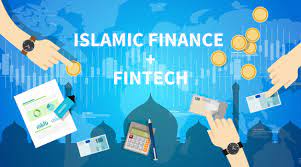
The landscape of finance is undergoing a profound transformation with the rise of Islamic fintech, a dynamic force that is challenging conventional financial systems. In the realm of Islamic banking, the concept of accountability, as rooted in Islamic philosophy, forms the bedrock of financial development. Initially dismissed as incompatible with modern banking, Islamic finance has not only proven its resilience but is flourishing, debunking skepticism.
Islamic banking operates on the premise that all wealth belongs to God, and humans are trustees tasked with managing it for the greater prosperity of society. The Holy Quran, in Surah Nur, Verse 33, emphasizes giving from one’s wealth, while Surah Baqarah, Verse 275, explicitly forbids usury, promoting the idea that wealth should be invested to build community financial infrastructure rather than hoarded for personal gain.
The historical evolution of Islamic banking is intricately linked to the Arab concept of ‘amanat,’ which underscores entrusting reliable individuals with financial assets. Trustworthiness, embodied in ‘Al Amanah’ and ‘Al Masu’uliyyah,’ became the cornerstone of the community’s financial ethics, making the absence of riba (usury) a pivotal tool for fostering a healthier business environment.
The introduction of mudaraba (profit and loss sharing) and musharaka (partnership) as risk-sharing mechanisms has proven effective in fostering precise reporting and transparent disclosure of financial information. Stakeholders, with a vested interest in the ventures’ success, have contributed to robust collaborative frameworks.
Zakat (charitable giving) and sadaqah (voluntary giving) play a crucial role in redistributing wealth, addressing social inequalities, and fostering a more equitable and transparent financial ecosystem. This evolving landscape of Islamic finance operates within the parameters of taqwa (mindfulness of accountability towards Allah), ensuring the highest moral principles are upheld. Strict prohibitions on gambling, fraud, and coercion further contribute to the ethical foundation of Islamic commerce.
In the realm of Islamic fintech, mobile banking, online payment systems, and blockchain applications are gaining significant traction, bringing the unbanked, especially women and youth, into the financial fold. Artificial intelligence enhances the sector’s ability to detect and predict behaviors, yet the true potential of ‘Islamic’ firewalls remains to be fully realized.
Globally, the emergence of green Sukuks to fund environmentally friendly projects reflects a commitment to sustainability, attracting socially conscientious investors worldwide. Islamic financial instruments, with their robust resistance to phishing cyberattacks, offer a resilient alternative banking system.
In conclusion, the ethos of well-being embedded in Islamic banking, with its roots in accountability and ethical principles, positions it as a formidable and resilient player in the global financial landscape. As Islamic fintech continues to evolve, it holds the promise of not only transforming financial systems but also contributing to a more just and sustainable world.